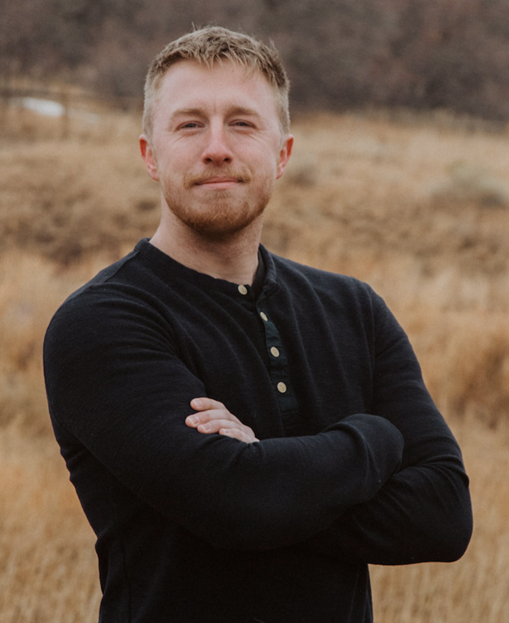As a student pastor, there’s a continuum of things you experience if you’re in their (students’) lives long enough. From seeing them eat baby food out of a diaper, to watching them on a stage or field. Then, there are those rarer moments, sitting with them on the playground after they’re betrayed by a friend or, for our purposes, they take on an identity label. Side bar: all those (above) happened this week for me. How’s your week going? 🙂
In their book: Growing Young, the authors out of Fuller Institute say that today’s young people (Gen Z & Gen Alpha) are asking 3 Big Questions:
- Who am I? –– Identity
- Where do I fit? –– Belonging
- What difference can I make? –– Purpose
Each of us are asking those, but these generations of kids are asking them more acutely.
But, what do you do if a biological boy in your youth group openly mocks trans* people during a gathering? How do you respond if a few girls declare they’re ‘non-binary’ and want different pronouns? What is my next step after a student takes on an identity label and shares it with you? Below are a few compass headings to chart your way through the turbulent waters.
Deciphering a New Language
In the book Emerging Gender Identities, the authors (Yarhouse & Sadusky) ask what does it look like to become students of a culture without internalizing every cultural narrative as absolute truth? The suggestion is:
“not that the newly developed language is ‘correct’ or that you should adopt a new doctrinal position in response to the changing language. Rather, the aim is to become familiar with the relevant language so you can be conversant with people whom you engage. (118)
The world that students inhabit is a vastly different one than many of us experience. There are powerful social, interpersonal, and spiritual forces at play in forming and deforming students. These should not be overstated or underappreciated. The aim in deciphering this new language ought to draw us to listen to how the individual(s) feel about their gendered or sexual selves. By being gentle, careful, and extending respect (while there might be disagreement), they will know they’re being understood. By resourcing yourself, whether it be with us at WGA or reading a book like The Gender Revolution or Emerging Gender Identities, you’ll be better equipped to engage with grace + truth. In so doing, you’ll be given an opening to help the student see that the identity they’ve adopted is fragile and only one part of their personhood. That identity is insufficient to hold the existential weight they’re aching for (3 questions above) – but the way of Jesus gives them an identity that is received and not achieved. This is the way to be free, whole, and authentic – in this life and the next.
Belonging
One scholar on the book of Mark said all of Jesus’ disciples were ‘ongoing converts.’ I love that! Such grace + truth. In the case of scenarios listed above, we assure each of them of our love and support, while acknowledging the avalanche of pressures that besiege them. And, at times, they unknowingly make a choice. They can belong here, before or even if they never want anything we’re talking about. Yes, teenagers live in a pluralistic world where love, social justice, and equality are all interpreted differently and are endlessly permissive. We can start by exploring their moral values. What are they? Why do they hold them? Are they aligned with the Scripture’s teachings? Why or why not? While we listen to their stories, we look for, not causes, but data points that might be informing them. In assessing the world that students inhabit, we can (guided by the Holy Spirit) seek to understand the good God has put in them, what might be broken, and ensure that they’re opened up to gospel engaging environments.
One example, by our witness we can facilitate what Yarhouse recommends to students as being descriptive about themselves, rather than blurting out a label. I.e., “this is really difficult and scary to tell you, but I want to share with you so we can have an open and honest relationship. I experience my gender differently than most people……” (Emerging Gender Identities, pp 158-60)
Purpose
Yes, there have been subtle shifts from “who I’m attracted to,” to “this is what I am.” But the question that’s rarely being asked is what is my sexuality for? WGA’s aim is less about critiquing culture, than trying to flourish a counterculture. Amid the sexual revolution, the questions that are hardly asked are: is this making us better people? Happier? Are we thriving in ways we weren’t prior to this “liberation”?
What if we preemptively talked about sexuality before these scenarios surfaced, or at least prepared for them? What if after resourcing yourself and providing safety, you asked if you could read together what 1 Corinthians 6:12-20 might mean for both of your lives with your student(s)?
While each of those scenarios deserves its own blog post (which we may do!), take heart, friend. How someone identifies today, might not be the case next year. Yes, I hear the fear of someone becoming entrenched in _____. At the same time, as Christopher West says, all of this sexual deviation is a “longing for heaven gone berserk.” When we decipher the new language, with our mental maps informed by the Scriptures and the Spirit guiding us with grace and truth, we will offer the most compelling apologetic – love. Real love puts people in touch with reality. The reality of our bodies as well as the real God who made us and loves us. The eternal one who satisfies the 3 Big Questions and gives us a label that far exceeds anything we could come up with on our own.
*For further treatment on a youth group setting, please see paper #17 at The Center for Faith, Sexuality & Gender, “Youth Ministry with LGBTQ+/SSA Students.”

Greg Navitsky
WGA Staff
While growing up in Arlington Heights, IL, it wasn’t until the start of my senior year did I start to wonder if Jesus was worth considering. For me, it took the intellectual, communal, and personal components to come together to say – yes – to Him. I like to say He captured the restlessness of my soul and like a guitar restrung my heart with the cords of eternity and it hasn’t gone back since.
Shortly after coming to know Jesus as my greatest hope and reality, my father died. Since then, I’ve taken great comfort in Corrie Ten Boom’s words, “If you look at the world, you’ll be distressed. If you look within, you’ll be depressed. If you look at God, you’ll be at rest.”
Then, not long after that, a family member came out to me. For the first time this dimension of life – spirituality and sexuality – wasn’t an abstract concept, this was and is a person. After attending to them with grace and truth, an odd phenomenon kept happening to me, or has it been for something? Individuals would continually trust me with their questions, wounds, and curiosities about their sexuality. At this point, it’s climbed to 15+. From there, I’ve invested the better part of eight years being engaged with individuals and immersed in the dizzying array of literature on these areas of our personhood.
I’ve found Elizabeth Elliot’s words to have great bearing on our cultural moment: “Faith doesn’t eliminate questions, but faith knows where to take them.” Two prayers that have grounded and guided my life are: “I long to have faith and obedience like those I see in the Scriptures, and I long to preach the gospel to the nations.”
Those are my life’s aims. Among my love of books, reflection, and nurturing meaningful relationships, I enjoy good coffee, jazz music, golf, snowboarding, the movies, pizza (pepperoni), cooking, the mountains, and the beach as well as traveling.
I hold an MDiv from Denver Seminary, and I hope to gain more clarity on pursuing a PhD in the coming years.
I’m humbled and honored to join the WGA staff and contribute to the on-going space they are curating for every person, every story, and every beautiful and broken aspect of our human experience.
Make a Difference in Someone's Life
If you enjoy reading WGA’s blogs and would like to show your support, please consider making a donation. Where Grace Abounds is a 501(c)3 non-profit organization. The majority of services, including support groups and discipleship counseling, are provided free of charge. Your financial gifts help to cover the costs associated with offering a free program to those who seek WGA’s services.

